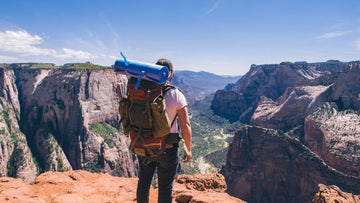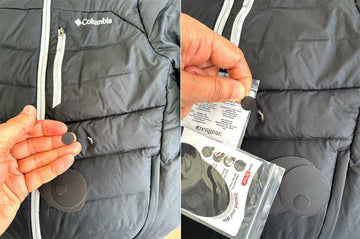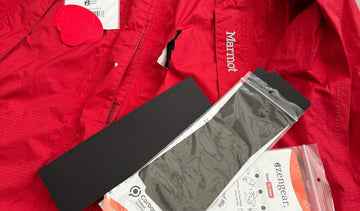A Beginner’s Guide to Backpacking: Your Ticket to Adventure
by Emily Jannet on May 20, 2024
Are you yearning for adventure, seeking to explore the great outdoors, and immerse yourself in nature's wonders? If so, backpacking might just be the perfect adventure for you. As a beginner, stepping into the world of backpacking can seem daunting, but fear not! This comprehensive guide is here to equip you with the knowledge and confidence to embark on your backpacking journey with ease.
What is Backpacking?
At its core, backpacking is a form of travel where you carry all your essentials—shelter, food, clothing, and gear—in a backpack as you explore remote and often rugged destinations on foot. It's an immersive way to experience nature, allowing you to disconnect from the hustle and bustle of everyday life and reconnect with the natural world.
Planning Your Adventure
Before you set off on your backpacking adventure, careful planning is essential. Start by researching potential destinations, considering factors such as terrain, climate, and level of difficulty. National parks, wilderness areas, and long-distance trails offer a plethora of options for backpackers of all skill levels.
Once you've chosen your destination, create a detailed itinerary that includes your route, campsites, and estimated daily mileage. Be sure to check for any permits or reservations required, especially for popular trails and backcountry areas.
Gear Essentials
Choosing the right gear is crucial for a successful backpacking trip. While it's tempting to splurge on fancy equipment, as a beginner, focus on the essentials:
Backpack: Invest in a comfortable, properly fitted backpack with sufficient capacity to carry all your gear. Look for features such as padded shoulder straps, a hip belt, and multiple compartments for organization.
Shelter: A lightweight tent or hammock provides protection from the elements and a cozy place to rest after a day of hiking. Consider factors such as weight, weather resistance, and ease of setup.
Sleeping Bag and Pad: Choose a sleeping bag that's appropriate for the expected temperatures and conditions. Pair it with a sleeping pad for insulation and comfort while sleeping on the ground.
Clothing: Opt for moisture-wicking, quick-drying clothing made from lightweight and breathable materials. Pack layers to accommodate changing weather conditions, including a waterproof jacket and insulated layers for colder temperatures.
Footwear: Invest in a sturdy pair of hiking boots or trail shoes with good traction and ankle support. Proper footwear is essential for navigating varied terrain and preventing injuries.
Food and Cooking Equipment: Pack lightweight, high-energy foods such as trail mix, dehydrated meals, and energy bars. Bring a compact stove, fuel, and cookware for preparing hot meals and beverages on the trail.
Water Treatment: Ensure access to clean drinking water by carrying a water filtration system or purification tablets. Stay hydrated by drinking regularly, especially in hot and dry conditions.
Navigation: Bring a map, compass, or GPS device to navigate trails and unfamiliar terrain. Familiarize yourself with your route beforehand and carry a backup navigation method in case of technology failure.
Safety and Leave No Trace Principles
Safety should always be a top priority when backpacking. Before you hit the trail, familiarize yourself with basic wilderness first aid and carry a well-stocked first aid kit. Be prepared for emergencies by carrying essentials such as a whistle, signaling mirror, and emergency shelter.
Additionally, practice Leave No Trace principles to minimize your impact on the environment and preserve the wilderness for future generations. Pack out all trash, dispose of waste properly, and avoid disturbing wildlife and vegetation.
Building Skills and Confidence
As a beginner backpacker, don't be discouraged by challenges or setbacks along the way. Embrace each experience as an opportunity to learn and grow. Start with shorter, less strenuous trips to build your skills and confidence gradually. Take the time to learn essential outdoor skills such as navigation, campsite selection, and fire building.
Consider joining a backpacking group or enrolling in a wilderness skills course to learn from experienced instructors and connect with fellow outdoor enthusiasts. Share your experiences and knowledge with others, and don't hesitate to ask for advice or guidance when needed.
Embarking on a backpacking adventure as a beginner can be both exhilarating and rewarding. By following this guide and embracing the spirit of adventure, you'll be well-equipped to explore the great outdoors with confidence. Remember to plan carefully, choose the right gear, prioritize safety, and practice Leave No Trace principles. Most importantly, savour every moment of your journey and revel in the beauty of the natural world.





